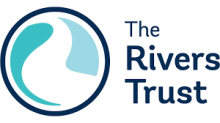View tool at https://agricultural-advice-hub-theriverstrust.hub.arcgis.com/
The overall aim of the project is to provide a free to use online data hub that builds upon the existing Catchment Based Approach (CaBA) data package and enables farmers, retailers, CaBA partners (including water companies and NGOs) to more easily identify:
- Sources of local, environmentally focused farm advice within a specific area.
- Key environmental issues.
- Range of different related initiatives and projects such as facilitation groups, Woodland Trust priority areas and Wildlife Trust priority catchments, NT Riverlands’ projects, Courtauld 2025 pilot areas.
Although this information currently exists, it is scattered across a myriad of different platforms and sources and is difficult to find. It is hoped by bringing all, or most, of it together in one place it will:
- Address an acknowledged information `gap`
- Support greater cross sector collaboration within catchments
- Provide a key resource for farmers/producers, retailers and CaBA partners and others
- Support businesses who want to improve the sustainability in their supply chains
- Ultimately improve the delivery of environmental outcomes and help join up the dots.
Context
Many organisations, across the voluntary, private and public sectors, offer advice to farmers with at least some focus on environmental outcomes. These include Rivers Trusts, Wildlife Trusts, FWAG (Farming and Wildlife Advisory Group) groups, Catchment Sensitive Farming (CSF - led by Natural England), and Water Companies. Environment-focused advice can also be delivered by private sector agronomists and agricultural consultants.
Following discussions between WWF-UK and Tesco, The CaBA Water Stewardship Service and some Courtauld signatories it has become apparent that there is a desire from businesses and others to be able to easily identify which organisations are able to offer local environmentally focused farm advice in England, Scotland and Wales, alongside any related landscape initiatives. The absence of this information has been a known issue for some time but until now, no one organisation has wanted to take the responsibility or had the remit and resources to address it. CaBA, with financial support from businesses, is perfectly placed to resolve this.
Situational Analysis
In the autumn of 2019, as part of the WWF/Tesco Partnership, WWF undertook pilot research to identify local sources of environmental farm advice in nine counties in South and East England. This process identified the following issues:
- Publicly accessible, web-based data of which organisations deliver advice, where, and for what is often poor, fragmented and not readily accessible.
- Some advice is funding-driven, so is time and often location specific (e.g. only in target areas)
- More advice organisations and projects work to catchment boundaries than to county boundaries.
- Some organisations deliver more topic-focused advice that is, perhaps, less geographically focused (e.g. RSPB, GWCT).
- The business sector has an important advice role in some instances – particularly water companies delivering drinking water standards against potential pesticide, nutrient and microbial matter contamination.
- There is sometimes cross-sector collaboration, which clouds the delivery mechanisms, e.g. water companies funding CSF advice in their target areas as a means of delivering their specific water quality objectives, with Ofwat steering the companies to preferentially use intermediaries, if appropriate.
- A GIS-driven, map-based interface, searchable by location (e.g. postcode), was considered the best format for any resulting database.
Proposed solution
The geographic nature of the source advice data and initiatives lends itself to a web-based, interactive map-based tool, searchable by location, capable of compiling a downloadable, contacts listing of all organisations able to deliver environmental advice to any farmer making an enquiry, including a summary of the advice offer for each organisation.
By environmental advice, we mean helping farmers to deliver any or all of the following: clean and plentiful water; thriving plants and wildlife; improved soil health; reduced greenhouse gas (GHG) emissions; a reduced risk of harm from environmental hazards such as flooding and drought; clean air; and using resources from nature more sustainably and efficiently. Advisory organisations may, of course, be able to deliver other farm advice as well. A web-based interactive map also provides the opportunity to overlay key additional environmental data and supporting initiatives.



